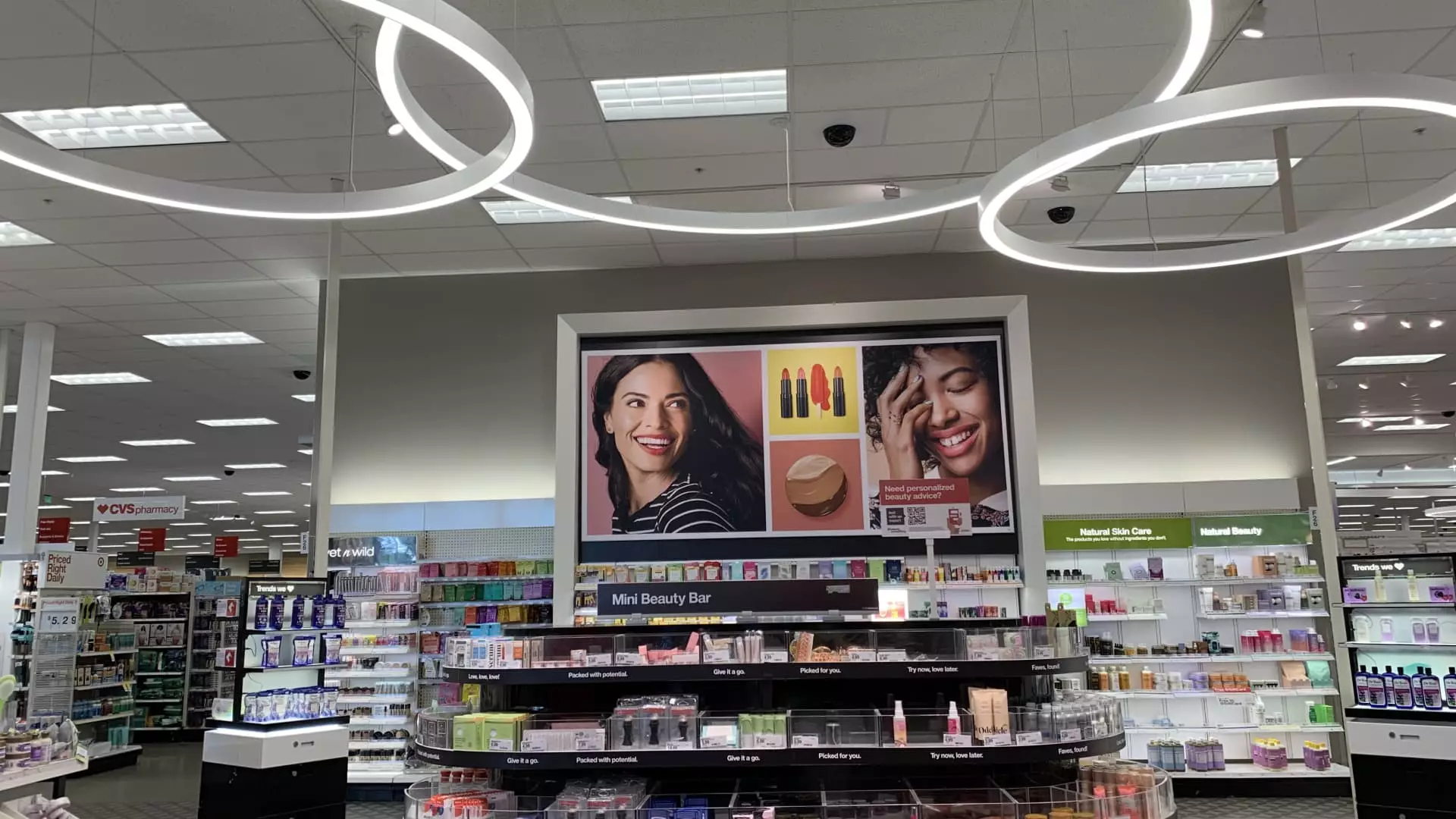The recent termination of the Ulta Beauty and Target collaboration signals a deeper crisis within retail strategies that once seemed promising. Initially hailed as a bold step towards revitalizing brick-and-mortar stores, this partnership was meant to blend the allure of high-end beauty brands with the accessibility of Target’s widespread presence. However, the fallout reveals more than just a failed business deal—it exposes fundamental flaws in corporate planning and a lack of genuine understanding of consumer needs.
Despite the initial enthusiasm, the alliance struggled to meet expectations. Ulta’s decision to pull the plug by 2026 underscores the misalignment between corporate visions and real-world execution. Instead of becoming a catalyst for growth, these shop-in-shops turned into symbols of missed opportunities and flawed assumptions about retail synergy. Target, which once envisioned beauty as a growth frontier, now faces the harsh reality that flashy partnerships alone can’t reverse stagnation or declining customer engagement.
Strategic Missteps and Why They Failed
One cannot ignore the underlying reasons why this venture began to unravel. Target’s overconfidence in the beauty category—a segment that experienced modest gains of 7%—was perhaps exaggerated. It seemed as though leadership believed that slapping on fashionable beauty brands would inherently energize their stores and attract a younger demographic. The reality, however, was less glamorous. Poorly executed operations, insufficient staff training, and an inability to create a compelling, differentiated shopping experience proved to be critical weaknesses.
More troubling is how the partnership became a pawn in Target’s broader struggles with operational chaos. Retail theft has become a scourge on the industry, and Target’s concerns about safety and staffing reflect broader systemic issues. These problems further diminish the efficacy of cosmetic shop-in-shops, which rely heavily on customer service and knowledgeable staff to foster loyalty—a feat increasingly difficult to achieve amid logistical chaos.
Furthermore, the partnership’s discontinuation highlights a significant overestimation of omnichannel strategies. Merely integrating Ulta products online and in physical stores did not translate into customer loyalty or increased sales. The assumption that a high-end beauty experience could be replicated easily within a mass-market environment was fundamentally flawed. Consumer expectations for authenticity, personalized service, and seamless integration are much higher nowadays.
A Flawed Business Model and Its Consequences
Target’s leadership seemed seduced by the allure of quick wins—adding a trendy beauty brand in hopes of capturing the millennial and Gen Z demographic. Yet this naively simplistic approach glossed over the complexities involved in delivering a compelling retail experience. The fact that Ulta’s in-store presence was staffed by Target employees—rather than specialized beauty consultants—further eroded the premium perception that Ulta aims to project.
This decision exemplifies a broader trend in corporate strategy that underestimates the importance of expertise and customer experience. Beauty is an industry rooted in trust, knowledge, and personal connection—traits that generic retail staff cannot replicate. As a consequence, Ulta’s brands failed to truly resonate within Target’s stores, leading to underwhelming sales and a diminished brand image for both companies.
The ripple effects extend beyond mere partnership dissolution. Target’s broader financial health is shaky, with stagnant sales and declining share prices, reflecting failed diversification efforts. The expected uplift from beauty initiatives was overpromised, and the downfall of this partnership provides a stark lesson: superficial solutions cannot mask deep-rooted operational issues or consumer disconnects.
Implications for the Future of Retail Innovation
What does this fallout mean for the future of retail innovation? It underscores the importance of authenticity, strategic clarity, and operational excellence. Retailers must understand that partnerships—no matter how trendy or well-promoted—are only as strong as their core execution. The allure of high-profile collaborations can quickly turn sour if they fail to address fundamental customer needs or if they distract from core operational problems.
For Target, this signals an urgent need to rethink how they approach growth and customer engagement. Instead of chasing superficial trends, they should focus on investing in staff expertise, improving store safety, and creating tailored experiences that genuinely differentiate their stores from the competition. For Ulta, the lesson lies in the importance of maintaining control over brand identity and ensuring that partnerships enhance, rather than dilute, brand value.
This episode also acts as a cautionary tale about the hype surrounding retail partnerships in a highly competitive and unpredictable market landscape. Success depends less on flashy concepts and more on deep understanding, strategic patience, and operational integrity. Retail giants must resist the temptation of quick fixes and instead build sustainable, authentic value propositions that resonate with their core consumers.

